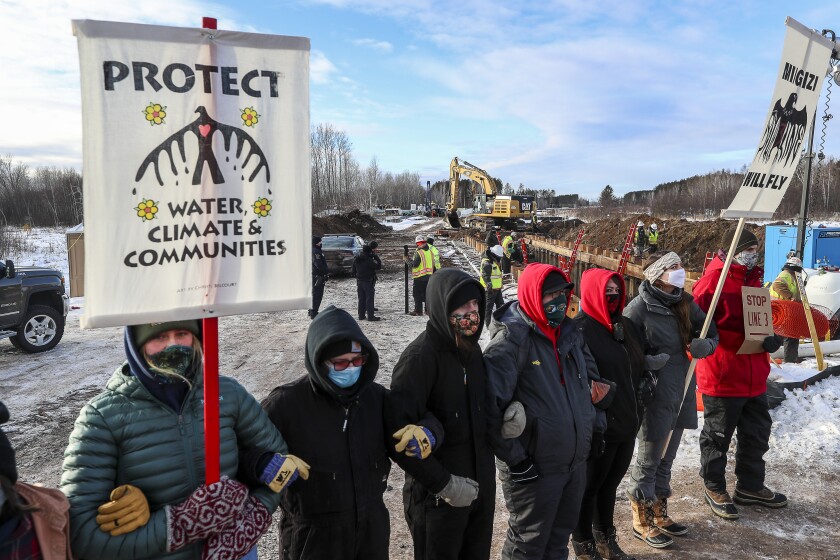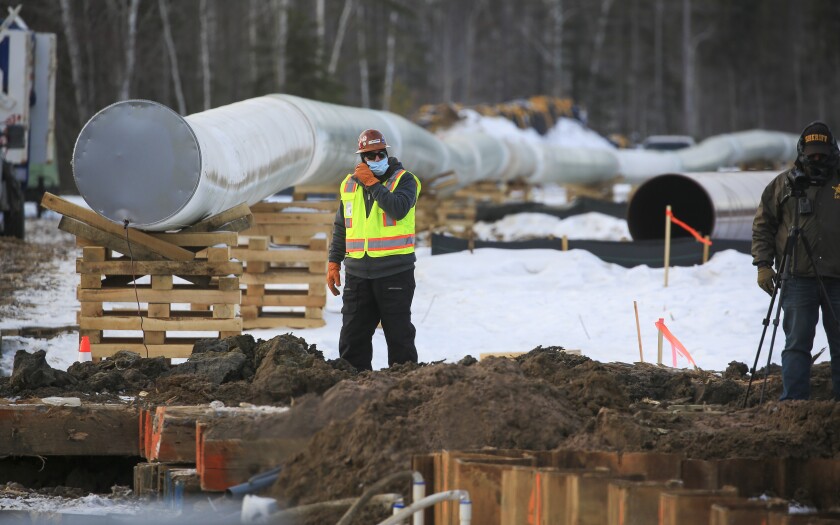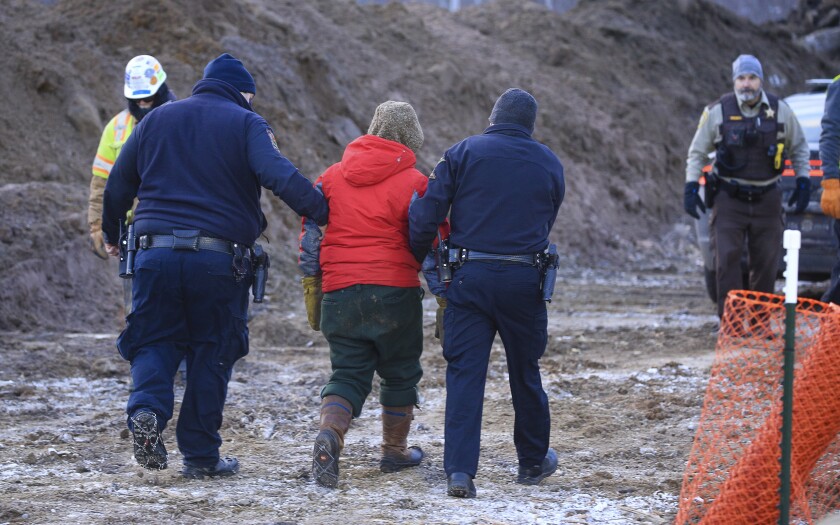When Taysha Martineau found a piece of land for sale next to Enbridge's pipeline corridor through the Fond du Lac Reservation, she raised $30,000 on GoFundMe and bought it.
Within a week, the parcel on Magney Drive became a home base for activists, who call themselves Water Protectors, opposed to Enbridge's Line 3, the 340-mile oil pipeline under construction across northern Minnesota.
Some at the camp stay for a few days and nights at a time; others drop in during the day for planned protests at construction sites throughout the reservation.
On a recent Friday afternoon, the site was filled with tents and wooden shanties, but no work was underway on the pipeline a few hundred feet away, so several dozen activists who met there for "Frybread Friday" drove to two other nearby worksites.
At each site, one person climbed into the bottom of trenches dug for the pipeline until law enforcement and fire department officials convinced them to exit. Both were arrested. During that time, the other activists stood on the roads chanting with signs and lending the protesters in the trenches their support.
ADVERTISEMENT
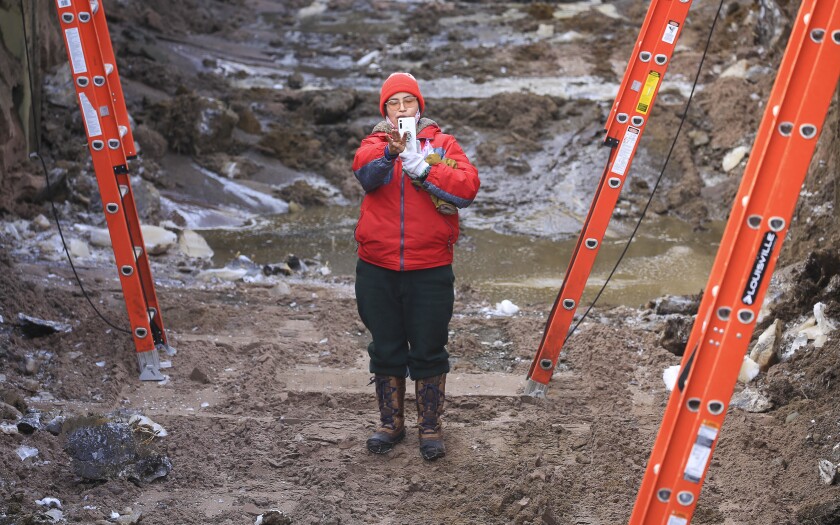
Martineau said it's an attempt to delay Line 3 until ongoing court cases are resolved. Opponents of Line 3 say the pipeline's construction violates Indigenous treaty rights, risks the chance of an oil spill and deepens reliance on fossil fuels — something they say should be abandoned as soon as possible amid mounting climate change consequences.
"I don't believe that I am going to be able to be able to stop them from doing construction, but that is the goal — to stop Line 3," Martineau said. "And I'm hoping that by slowing them, I'm ensuring that day in court for my relatives."
The Red Lake Band of Chippewa Indians and White Earth Band of Ojibwe want the court to pause Line 3's permits until the court cases are resolved and the COVID-19 pandemic subsides. The ongoing cases consider whether the correct calculation was used to determine the pipeline was actually needed and whether the environmental impact statement correctly considered environmental effects on the St. Louis River and Lake Superior.
Still, work on the pipeline began Dec. 1 and is expected to take six to nine months. Once complete, it will ferry oil from Alberta to Superior and replace an aging Line 3, but follow a largely different route through northern Minnesota.
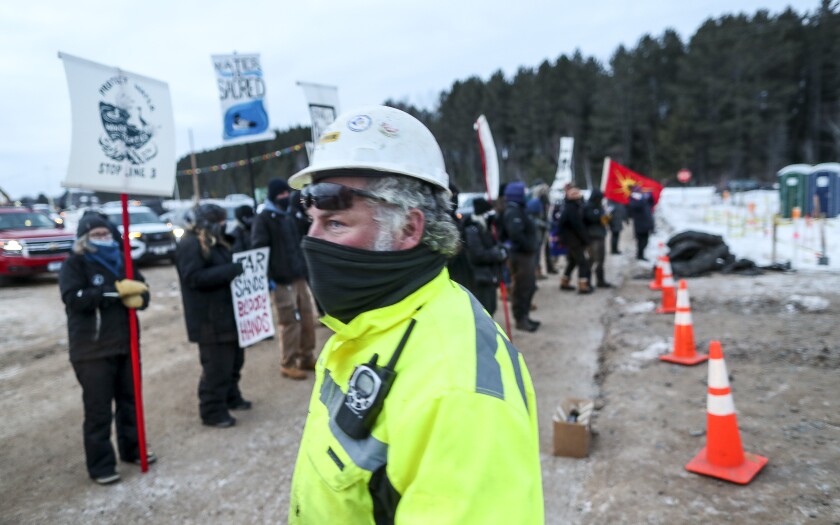
ADVERTISEMENT
But the 13 miles of Line 3 that will go through the Fond du Lac Reservation follow the existing route taken by the old Line 3 and four other Enbridge oil pipelines. During this time, crews are also replacing a 10-mile section of Enbridge's Line 4 on the reservation .
The Fond du Lac Band originally opposed the Line 3 project, but shortly after Line 3 was approved by the Public Utilities Commission, the Band agreed to allow Enbridge to build the pipeline through its reservation.
The band had been presented with an option: Allow Line 3 to go through the reservation alongside existing pipelines or follow a new route around the reservation, but through its ceded land.
Martineau, a band member herself, said she recognizes the tough position the band was put in.
"This is just another treaty that they were forced to sign, and I know (Tribal Chairman Kevin DuPuis) and (Reservation Business Committee) band members' hands are tied because of the decisions made by the enacting government before his time even," Martineau said. "And this was a Sophie's Choice, and they felt that they were forced to pick a bullet."
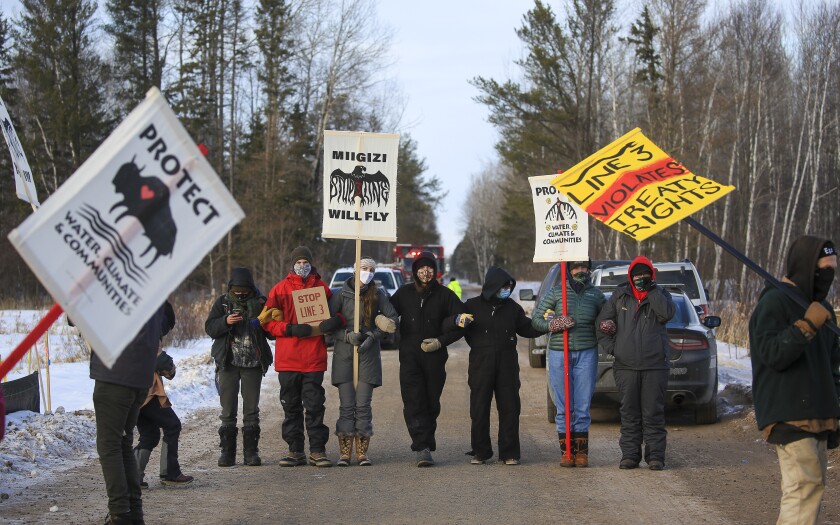
The different stances of activist band members and the Reservation Business Committee, the band's governing body, can make the protests a challenge.
ADVERTISEMENT
"This puts me in a position where I have to go toe to toe and face down with my own tribal police officers, some of which I've known my whole life, some of which I've sat in ceremony with, some of them have fed me and my children and some of them I've fed," Martineau said. "This is my home community."
As the Fond du Lac Police Department declared the protest a few miles from camp an unlawful assembly and gave the group its second warning, the division over Line 3 within the reservation was highlighted.
"You're on the wrong side of being Anishinaabe," a protester yelled at a Fond du Lac Police Department officer. "You're on the wrong side of history!"
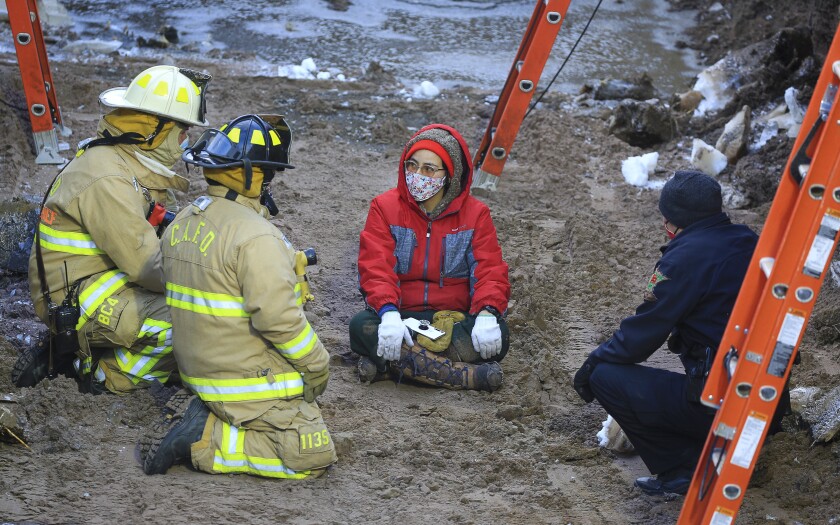
After police and members of the Cloquet Area Fire District talked the protester in the trench into climbing out, they arrested the protester.
The protesters then drove over to the next road crossing, where similar actions were being taken. But the protester in that trench, who was also arrested, faced "fine sand, which was actively sloughing into the trench, placing this individual in peril of being buried alive as the wall continued to collapse," a fire official said .
Juli Kellner, a spokesperson for Enbridge, said the company plans to take legal action against protesters who break the law.
ADVERTISEMENT
"As a company, we recognize the rights of individuals and groups to express their views legally and peacefully," Keller said. "We don’t tolerate illegal activities of any kind, including trespassing and vandalism, that endanger the environment, public safety or critical energy infrastructure. We will seek to prosecute those individuals to the fullest extent of the law."
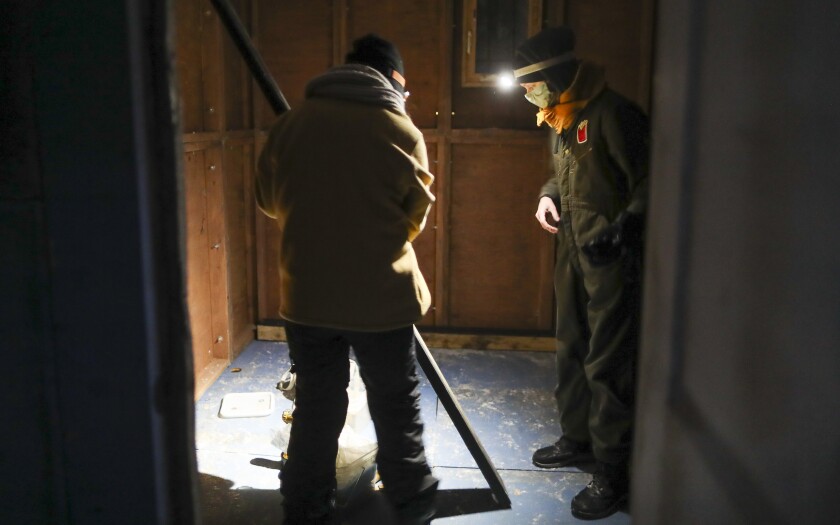
Back at Camp Miigizi, as the sun set and the temperature fell, Erin Lavelle and Sequoia Hauck, both of Members of Art Shanty Projects, based in Minneapolis, rushed to finish assembling an ice house that in a non-pandemic winter would be part of an art festival on a Twin Cities lake.
Kathleen Spencer and Rachel Sipress, both of Duluth, mingled around the fire, chatting with people trickling back into camp from the protest.
"We have to get rid of this stinking pipeline and fossil fuels," Spencer said.

